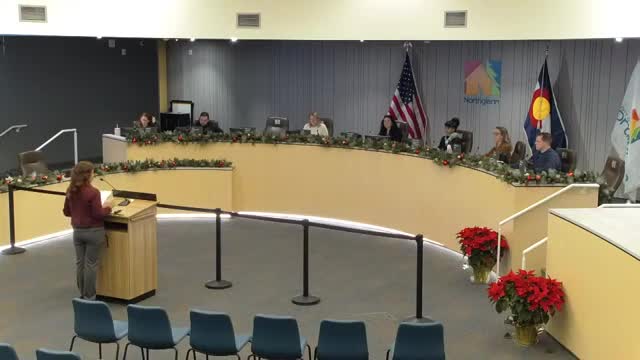Council begins prioritizing draft strategic plan; asks staff for fiscal detail on regional requests and moves speed cameras earlier
Get AI-powered insights, summaries, and transcripts
Subscribe
Summary
City leaders reviewed a draft five‑year strategic plan and the general‑fund forecast, moved a speed‑camera pilot into 2025 and asked staff for clearer fiscal analyses of regional requests before committing to multi‑year funding.
City Manager Heather Geyer and Deputy City Manager Jason Loveland led a lengthy review of the draft 2025–2029 strategic plan and a short‑term general‑fund forecast, prompting council direction on scheduling, study sessions and several program timelines.
Jason Loveland highlighted the forecasted revenue increase beginning in 2026 tied to a 0.5‑percentage‑point sales‑tax reallocation approved in 2023, which staff estimated as roughly $3.8 million of additional annual revenue. Loveland and Geyer showed how the new revenue was already prioritized in part for public‑safety investments, road and park capital transfers, and other ballot‑language commitments. The presentation also removed assumed new full‑time positions from the near‑term forecast so council could reconsider staffing requests during the formal budget process.
Public safety and regional partnerships drew the most discussion. Council agreed to move a traffic camera/speed‑enforcement tools pilot (listed at $52,000 on the slides) from the tentative future into 2025 on the condition staff return with a procurement and funding plan; Deputy Chief said vendors can provide options where fines cover vendor payments so initial out‑of‑pocket city costs could be minimal. Council also discussed the city’s role in an Adams County‑led walk‑in crisis and detox center; staff said a Northglenn share is currently estimated at about $236,000 (roughly 4.73% of the current project estimate) and that the project would come to council later as an intergovernmental agreement (IGA) for approval. Council members asked staff to present the detox/walk‑in cost, alternatives and tradeoffs in a study session before committing funds in the 2026 budget.
Other public‑safety items discussed include the police department’s records management system (RMS/IRM), which council directed staff to fund using general‑fund reserves ($1.5 million was identified in the presentation), and continued funding for the CREW program. Staff said Adams County provided a two‑year grant to support two additional CREW positions and associated costs, but that beyond grant funding continuing the positions would require budget decisions in future years.
Council debated including a Family Justice Center (FJC) in the plan. Staff reported the county and the district attorney’s office are pursuing a temporary location and that the county has not yet committed full operational funding; staff estimated a temporary facility might need on the order of $100,000 to establish in the short term, while long‑term costs remain undetermined. Several council members said they support the FJC concept but expressed concern about including a multi‑hundred‑thousand‑dollar regional commitment in the city’s short‑term plan without clearer county funding commitments.
Council directed staff on several scheduling and scope items: move the Northland cadet program timeline forward into the budget discussion process and schedule a study session in 2026 to scope that program; the council agreed to push forward an “innovation team” launch so staff could attend initial training and begin concept work in 2025 rather than leaving it for later years; and council tasked staff to research resident‑survey options this year (study/research in 2025, RFP and budgeting in 2026, administration in 2027) rather than rushing an immediate survey.
On infrastructure, staff reiterated large capital priorities: a 112th Avenue drainage/mitigation effort was presented with a preliminary cost estimate of about $19 million and no current funding, and park amenity replacement was shown as a funded priority beginning 2026 with an initial $500,000 allocation tied to the sales‑tax commitments. Council members also debated individual park investments: staff noted a $50,000 match for a proposed futsal court at Larson Glen Park as part of the Northglenn Playbook implementation, and several members said they supported programming and outreach to ensure such amenities would be used.
Council did not adopt the strategic plan Monday and did not take formal votes on budget items. Instead, council provided direction: staff should return with detailed fiscal tradeoffs for 2026 budget decisions (including all regional funding requests), present speed‑camera procurement/funding options promptly, schedule study sessions on the Adams County detox/walk‑in center and the proposed cadet program, and prepare options for the RMS implementation and HRIS/technology decisions for the budget process. Staff committed to revising timelines, adding clarifying language where council requested it, and returning to council for adoption when the fiscal implications are clearer.
